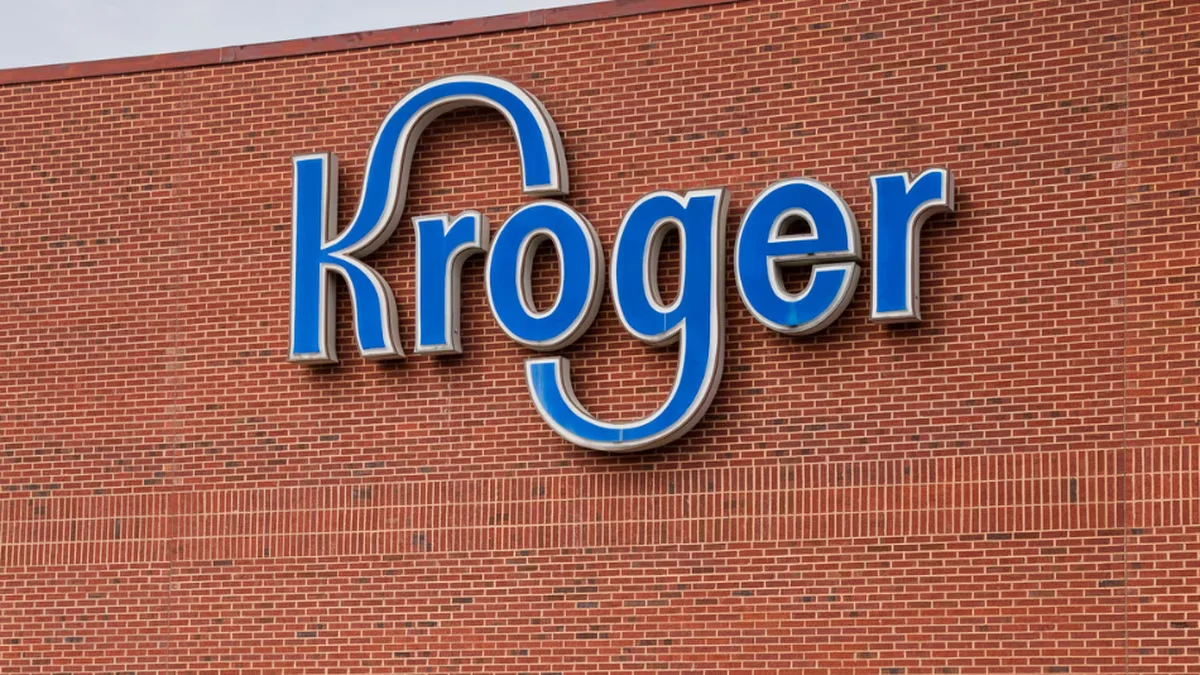Kroger, one of the largest supermarket chains in the United States, recently revealed a significant financial development that is making waves in the retail and healthcare industries. The company announced a $1.4 billion charge related to a national drug settlement in the current quarter, signaling a pivotal moment in its financial trajectory. Alongside this revelation, Kroger issued a sales warning for the remainder of the year, citing anticipated challenges in customer spending.
The settlement, which comes in the wake of a collective agreement totaling $13.8 billion reached by other major retailers including CVS Health Corp, Walgreens Boots Alliance, and Walmart back in November of the previous year, underscores the ongoing legal and financial consequences tied to the opioid crisis. Kroger’s substantial contribution to the settlement reflects the company’s commitment to addressing the societal impact of opioid addiction.
However, this is not the only major development in Kroger’s recent corporate agenda. The company is currently in the process of merging with smaller rival Albertsons in a massive $25 billion deal. To secure approval from US regulators for this proposed merger, Kroger has disclosed plans to sell 413 of its grocery stores to C&S Wholesale Grocers. Additionally, in a strategic move to navigate regulatory requirements, Kroger has indicated that it may require C&S to purchase an additional 237 stores in specific geographic regions. The merger, with a closing date expected in early 2024, is poised to reshape the landscape of the American grocery industry.
J.P. Morgan analyst Ken Goldman commented on these developments, noting that one of the primary concerns regarding Kroger and Albertsons was the challenge of finding suitable buyers for their assets. Now, with the announcement of store sales and the drug settlement behind them, the companies appear to be on a more solid footing as they pursue their merger ambitions.
In response to these announcements, Kroger’s shares rebounded, surging by 4.3%, while Albertsons’ stock saw a 3% increase during early trading. The market seems to be cautiously optimistic about the merger and the steps Kroger is taking to resolve its legal challenges.
Cincinnati-based Kroger is not immune to the economic challenges brought on by rising inflation, which has impacted consumer spending across the board. The company recently fell short of its same-store sales targets for the second quarter and anticipates continued difficulties in the current economic environment. CFO Gary Millerchip shared the company’s outlook, stating, “We expect identical sales, excluding fuel, to be at the lower end of our full-year guidance range and slightly negative in the second half of the year.”
Kroger reported a loss of $180 million, equivalent to 25 cents per share, marking its first quarterly loss in nine consecutive quarters of profitability. This loss is attributed to charges related to the opioid issue, in contrast to a profit of $731 million, or $1.01 per share, from the previous year.
Analyst Joe Feldman from Telsey Advisory Group pointed out that despite slowing sales, Kroger’s earnings remained resilient. On an adjusted basis, Kroger reported a profit of 96 cents per share, surpassing LSEG’s estimate of 91 cents per share. Additionally, the gross margin improved by 35 basis points compared to the previous year.
In summary, Kroger’s recent financial announcements, including the significant drug settlement charge and the planned store sales, reflect the company’s commitment to addressing legal and regulatory challenges while pursuing strategic initiatives. The merger with Albertsons, once completed, will reshape the competitive landscape of the grocery industry, with potential implications for consumers and investors alike. As Kroger navigates the evolving economic environment, its ability to adapt and maintain profitability will be closely monitored by market observers.




